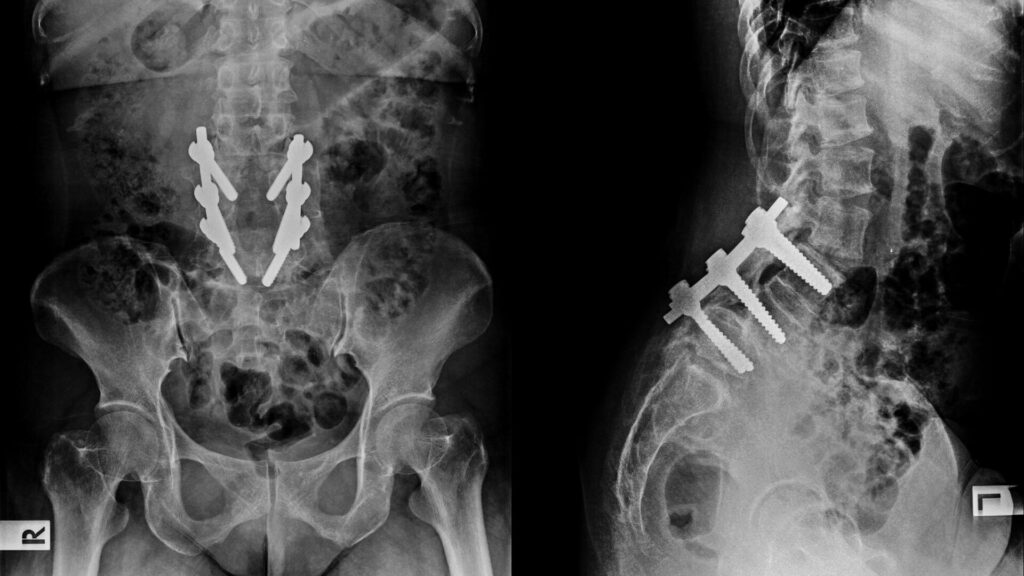Herniated Discs Treatment in Plano

Image sourced from Canva
A herniated spinal disc can be much of a pain, literally and figuratively. That’s why herniated discs treatment in Plano is very much welcome to the Texas community.
Someone with a herniated disc has problems with his spine. He may experience pain, weakness, or numbness along his back, although these sensations can be felt in the limbs as well.
The spinal disc, a rubber or jelly-like cushion, is situated between your vertebrae. Too much activity, inactivity, or a sudden shift in movement can rupture the disc. However, this may go unnoticed at times, leaving no symptoms or traces of the condition.
While you could have a herniated disc in your lower back, you could also have it in your neck. The severity and location of the pain depend on where the disc is and whether it has affected a nerve. Still, herniated discs can make anyone uncomfortable and distracted.
Signs and Symptoms of a Herniated Spinal Disc
People with herniated discs feel numbness or a tingling sensation from the affected body part. The sensation can radiate to other body parts connected by the nerve.
Pain is oftentimes felt in the shoulders, arms, thighs, buttocks, calves, and feet. It is intensified when you sneeze, cough, or move.
The third symptom is muscle weakness. You could suddenly lose your footing or drop items. Your limbs could feel extremely tired even when you have not exerted much effort.
Why People Get Slipped Discs
A herniated disc is caused by degeneration. As much as most people want to ignore it, this condition comes with age. As you reach middle to old age, your spinal disc becomes prone to wear and tear. This is why you have to be more careful with movement.
One wrong move could give you a herniated disc disguised as muscle strain. If you or any elderly person you know has a slipped disc, you can go to the nearest clinic with degenerative disc disease treatment in Texas.
Other times, you can get a herniated disc when you lift heavy objects. The risk increases when you suddenly twist or turn your body while doing so. A fall, or a traumatic injury, is another leading cause of herniated discs.
Weight, Occupation, Lifestyle and Genetics as Risk Factors
Even young people can have a herniated disc and must seek herniated discs treatment in Plano.
Your weight, for example, is a risk factor. The extra weight adds stress to your lower back and could lead to the discs rupturing. Overweight and obese people must watch out for any signs of slipped discs, or lose weight to prevent them.
However, others are not as fortunate to simply “prevent” getting a herniated disc. This condition can be inherited and passed down from generation to generation.
Your lifestyle and occupation also play a huge role in your health. A physically demanding job and a string of bad habits, particularly smoking, can make your disc break.
Quick Remedies to Slipped Discs
The best treatment for herniated disc depends on the severity of the problem. If left untreated, this condition can press your spinal canal together and eventually lead to paralysis.
Not all cases of a herniated disc should be a reason for minimally invasive back surgery. Prevention can still be done by exercising regularly — and making sure you don’t do the heavy lifting so much; by maintaining a healthy weight; by standing and sitting with the correct posture; and by not smoking.
Nevertheless, seek medical assistance when you feel extreme pain, loss of sensation in your lower limbs, and incontinence.
When to Ask for Thoracic Herniated Disc Treatment
To alleviate the pain that accompanies a herniated disc, you could be given a temporary, non-surgical solution that combines a short period of rest, gentle exercise or activity, and analgesic. Medications can reduce the pain, at least for a given time. Most patients have prescribed an OTC pain reliever as quick thoracic herniated disc treatment.
There are also conditions that already call for herniated disc surgery. That is, when the pain is so unbearable that it disrupts your daily activities.
Prior to the surgery, you will be asked to take imaging tests: X-ray for your spine and joints; CT scan for the surrounding structures of your spine; MRI for a 3D image of your disc, spinal cord, and nerves; and electromyography (EMG) for your muscles.
If your tests show that surgery is necessary, you may be recommended for microdiscectomy, a type of minimally invasive procedure to decompress your disc. This procedure removes the affected portion of your disc, giving your nerve root more space. Eventually, the nerve root heals.
When undergoing minimally-invasive microdiscectomy procedures, the herniated part of the disc beneath the nerve root is taken out. By providing the nerve root with more space, the pressure is eased. The nerve root can then start to heal.
Surgeries like this don’t have to be scary, though. They jus t need to be performed by top-of-the-line clinics and a team of qualified, licensed neurosurgeons.
For a reasonably priced minimally invasive disc replacement surgery, or spinal stenosis treatment in Dallas, contact us now at (972) 244-3491 to book an appointment or learn more about herniated disc treatment.
Led by Dr. Scott C. Kutz, a neurosurgeon specializing in herniated discs, spinal stenosis, and spinal tumors, you will surely be given the right treatment, with painless and quick surgical procedures. Don’t endure the pain; seek the right herniated discs treatment in Plano through our clinic as soon as possible!
